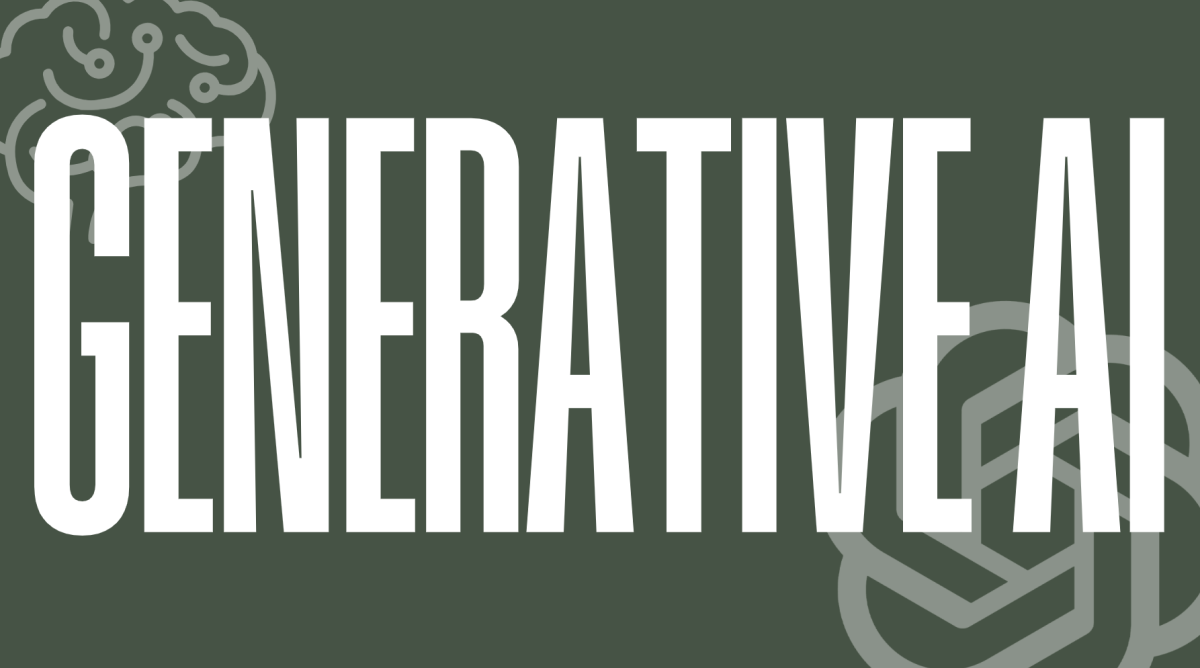It took all of 30 seconds for me and my friends to turn to ChatGPT to find the final piece for our group Halloween costume. Always having a funny TikTok or Instagram reel one swipe away conditions users to seek instant gratification. It is no surprise, then, how quickly we have become reliant on generative artificial intelligence (AI) to do everything that takes even the smallest bit of effort. My friends and I are smart and creative enough to come up with the sixth piece of our group costume, but why think for five minutes when ChatGPT can give us the perfect idea in five seconds?
This mindset is where the problem starts. The increasing employment of generative AI to handle various tasks has negatively impacted the writing, speaking and thinking abilities of its users. Although generative AI technology is relatively new, several studies already prove the harm in using large language models (LLMs). A MIT Media Lab study asked three groups — one using ChatGPT, another using the Google search engine and a third only their brains — to write SAT essays. The study found that those using ChatGPT to write “consistently underperformed at neural, linguistic, and behavioral levels.” Not only did the quality of the writing suffer, but the ability for the ChatGPT users to think critically was also harmed.
LLMs have also impacted the way users speak. In the process of training generative AI models, LLMs learn to use specific words like “delve” and “intricate” at a higher rate than human English speakers. Words like “delve” and “intricate” that are more frequently used by LLMs are now invading our real-life conversations. According to a study cited in Scientific American, people have begun to use “delve” more in normal, spoken conversation. Without realizing, we have begun to absorb speech patterns of generative AI and use them as our own. But why is this harmful? Surely incorporating a few words used by LLMs cannot be all bad. The issue is not that humans are using the word “delve” more often, but rather how quickly we subconsciously adopted the linguistic patterns of a machine. Humans should not have to make an active effort to avoid sounding like AI. At the same time, we should be more aware of how these patterns seep into our everyday language, diminish our originality and push us toward algorithmic and flat speech.
With ChatGPT reaching 700 million weekly users worldwide, the effect of generative AI on our language, thoughts and writing is impossible to ignore, especially since its influence will likely only continue to grow. Generative AI has become integrated almost everywhere online, from search engines to social media platforms. As usage of these technologies increases, so does their impact on how we express ourselves. Since generative AI is increasingly difficult to avoid, we must adapt to life with it. Adjusting to this new technology does not mean we should surrender our creativity or our voices by parrotting generated phrases. When one chooses to use a generative AI program, it must be done with careful intention and not as a shortcut to avoid thinking. AI can assist but should never lead. Using AI to write our essays and emails or letting it change how we think and speak are all examples of how we risk losing ourselves to LLMs. Allowing these systems to take the wheel causes us to lose important skills and doubt our ability to produce meaningful writing and speech.
Generative AI models have damaged our ability to think, write and speak. But now the choice lies in our hands: we can give in and continue allowing these systems to shape how we communicate, or we can push back with intention and awareness. The process of sitting in frustration not knowing the next line to write in an essay, or that of struggling to come up with Halloween costume ideas, should not be interrupted by typing in a prompt to ChatGPT. Since its release in 2022, the tolerance for encountering difficulties has sharply declined since a solution can be so easily found through generative AI. We crave the same instant gratification that comes from scrolling through social media. But the moments of struggle are where creativity and critical thinking emerge. Only by embracing the discomfort are we able to fully grow as thinkers, writers and speakers.
Johanna Brooslin, FCRH ‘27, is an English major from Medfield, Massachusetts.










































































































































































































